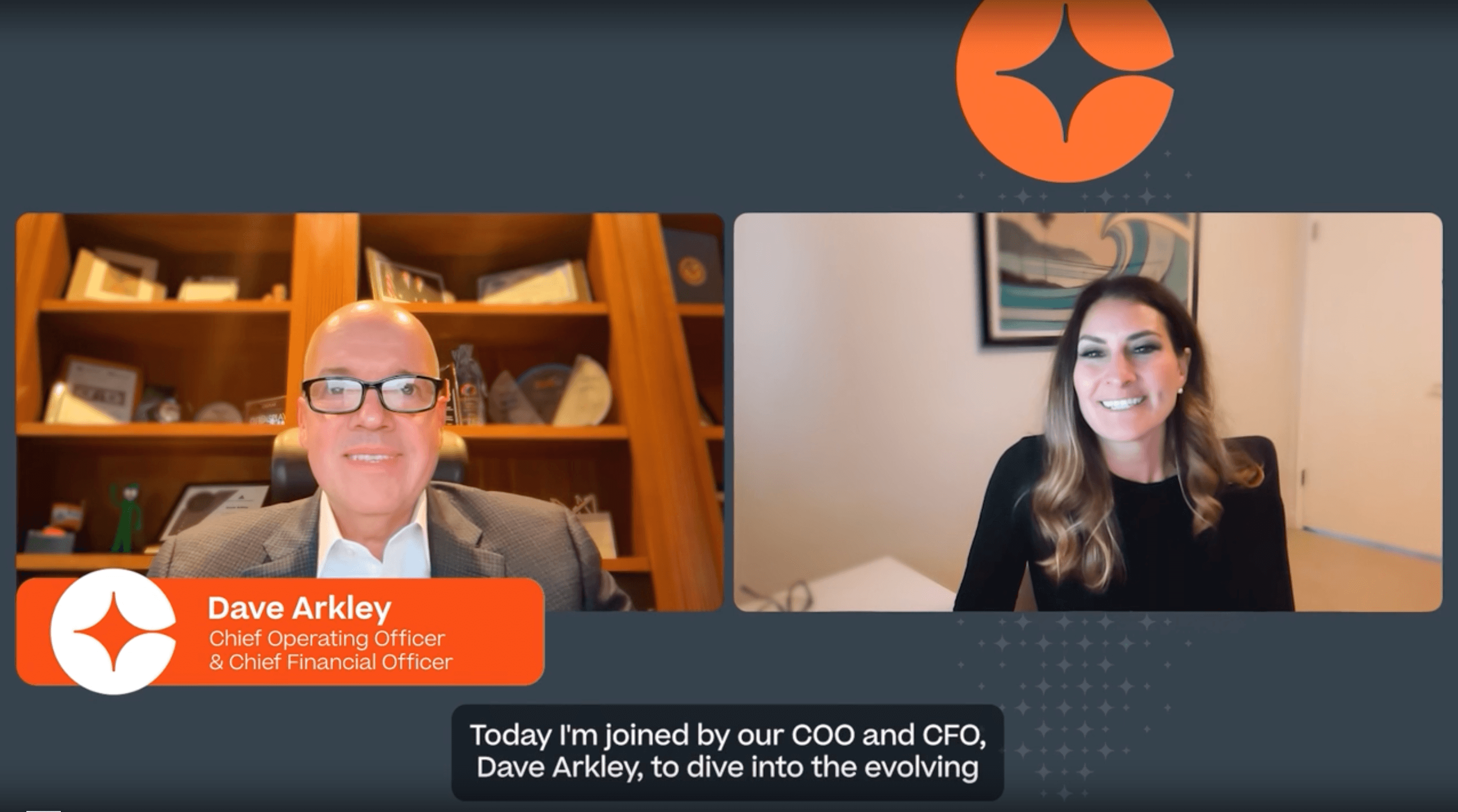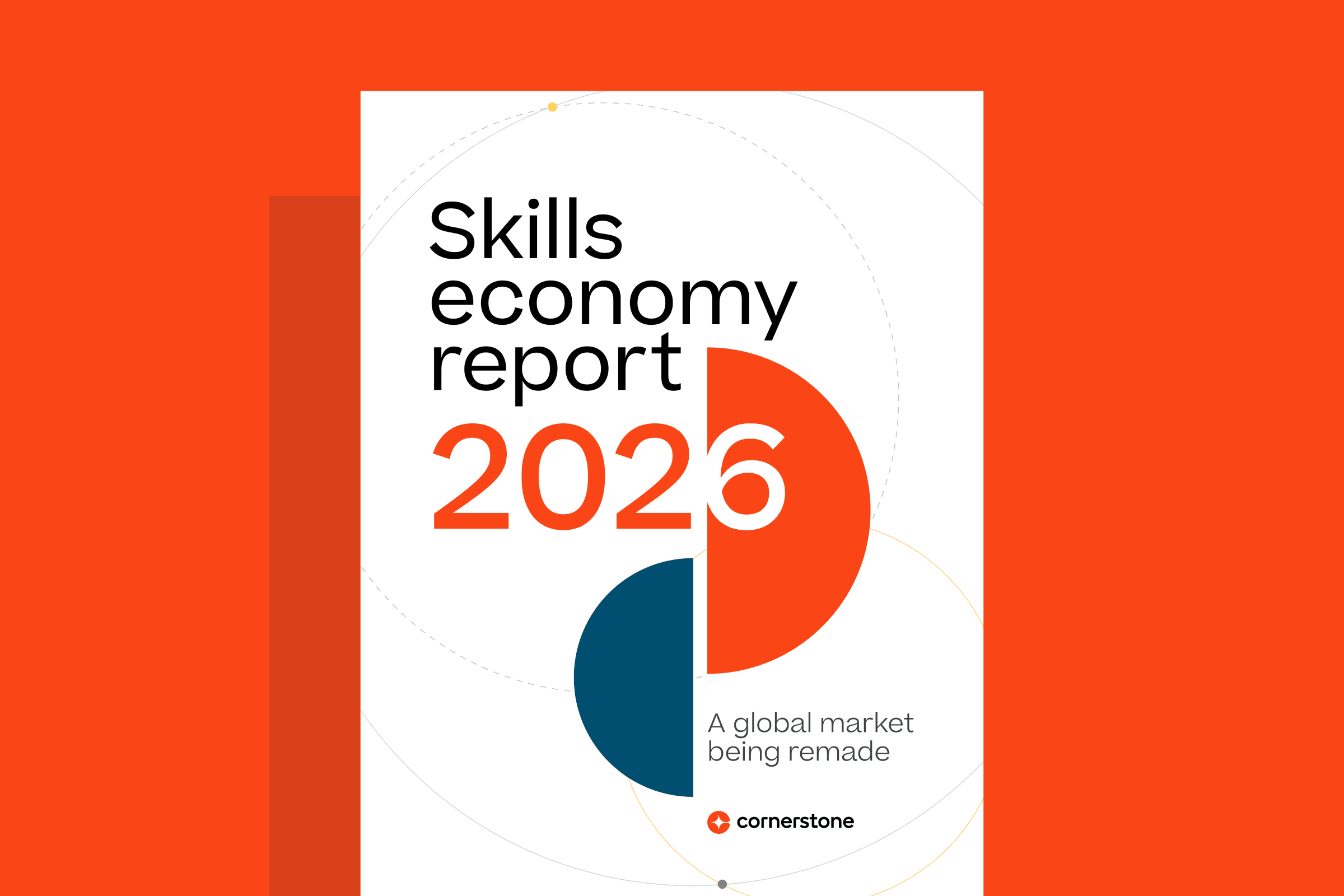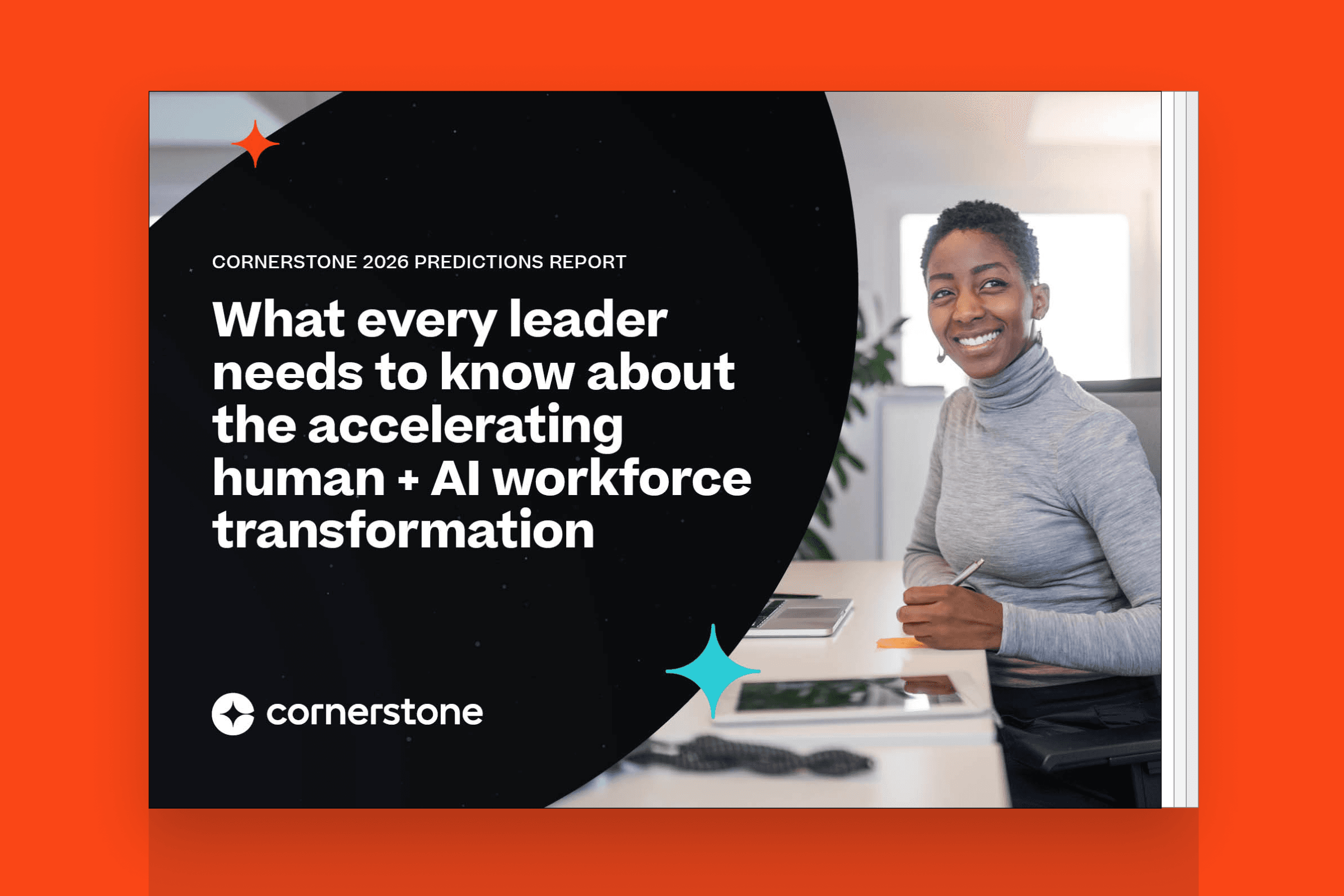Just as the 1960s popular primetime cartoon The Jetsons predicted, artificial intelligence (AI) and machine learning enhancements are already permeating our day-to-day lives, especially in the workplace. While we don’t drive airborne automobiles that look like flying saucers (yet), there’s been a significant societal shift toward automation, especially in the HR tech world.
Engineers are using AI to develop more efficient ways to code. Financial planners are using new computer programs to better forecast the future. Moving away from yesterday's paper-based processes to today's digital advancements has enabled businesses to execute long-term visions, despite economic uncertainties.

This surge of transformation has created an urgent need to empower people with the right tools to remain agile. As work evolves and new skills emerge, organizations must prioritize developing their people. According to the World Economic Forum’s 2023 Future of Jobs report, over 85% of organizations will increase the implementation of new technologies over the next five years, and nearly half (44%) of an individual worker’s skills will need to be updated.
Understanding how AI-powered technology can rapidly transform the workplace is more critical than ever. Businesses must lean into AI to upskill their workforce and — more importantly — cultivate a culture of continuous learning where people can effectively respond to ongoing, dynamic changes. Let’s examine the intentional advantages of the game-changing talent management automation disrupting the HR industry.
Why you should leverage ethical AI in HR
- Streamlined talent acquisition and recruitment: optimize large volumes of resumes, candidate screenings and video interviews
- Enhanced new hire onboarding: provide personalized onboarding experiences, guiding new employees and answering common questions while freeing up HR resources
- Predictive analytics for retention and succession planning: by analyzing various data points, AI helps HR leaders identify flight risks, address retention challenges and develop effective succession plans
- Intelligent performance management: deliver real-time feedback and personalized development plans for more accurate performance assessments and fair recognition of employee achievements
- Learning and development advancements: deliver personalized training content, identify skills gaps and create targeted development programs based on individual employee needs
- Employee engagement and well-being: monitor employee engagement and well-being and enable proactive support measures through various channels, including surveys, chat interactions and social media
- Human-in-the-loop decision-making: ensure bias mitigation and prevent unintended harm by allowing human oversite

Powering the future-ready workforce
When businesses harmonize productivity and growth with an easily-accessible and intelligent system designed for the new world of work, they future-proof themselves to weather any storm.
As a pioneer in workplace learning, Cornerstone is uniquely positioned to help businesses and their people navigate the future of work and leverage innovations, like AI, to learn, grow and succeed. Our team is hyper-focused on developing technology to help our customers embrace AI intentionally and strategically, just as The Jetsons were inspired to do.
Learn more about how Cornerstone AI engines guide, curate and customize personal experiences to transform skills at scale.


